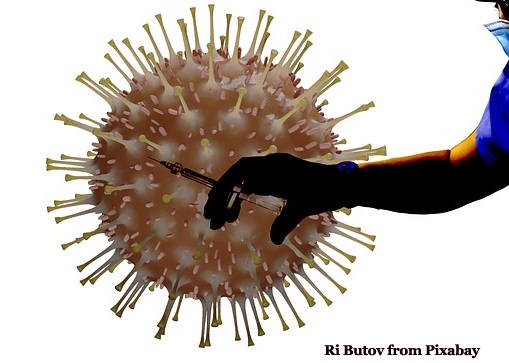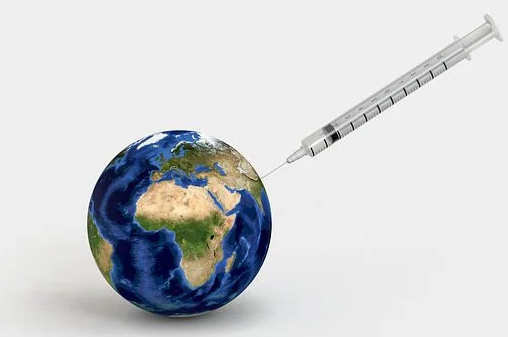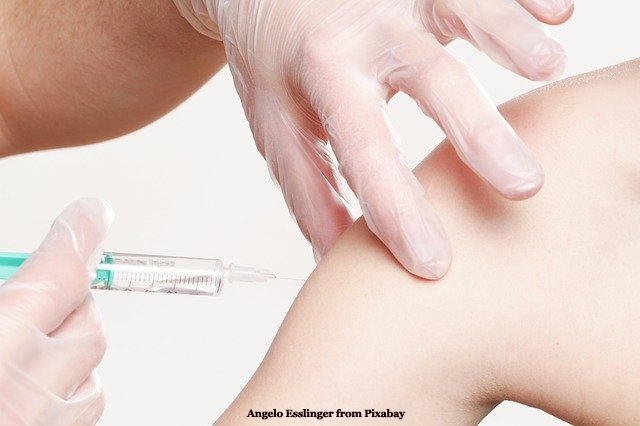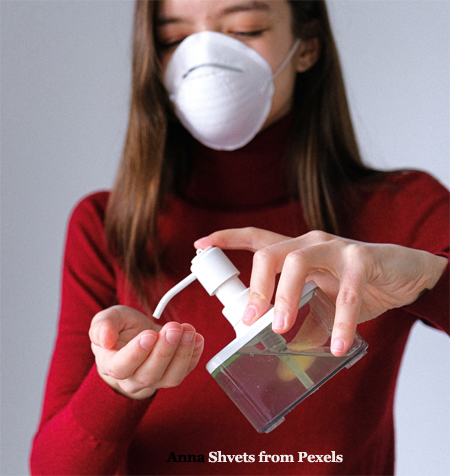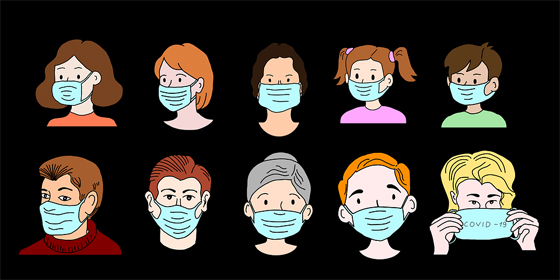FETAL CELLS in VACCINES
Are there fetal cells in vaccines that are used today (as of December 2021), especially in COVID-19 vaccines? The short answer is yes. Aborted human fetal cells have been and are still being used in the development, production, and/or testing of COVID-19 vaccines as well as of vaccines for many other diseases.
This raises the question--Does the use of fetal cells constitute a legitimate moral and/or religious reason for refusing to get a vaccine?
A closer look at the facts is warranted since the answer to that question may influence a person’s decision of whether or not to receive a COVID-19 vaccine--a decision that can have far reaching consequences, especially during a pandemic.
WHY FETAL CELLS in VACCINES?
Before fetal cells were available, scientists used cells from animals to develop vaccines and conduct cancer research. However, the cost of killing animals and the presence of potential diseases in animal cells, led to a search to develop a clean cell line from electively aborted fetuses.
There are many good reasons why human fetal cells are used to grow viruses to develop vaccines:
Viruses need cells to grow.
Because vaccines are developed to destroy viruses that affect humans, better results can be obtained if human cells are used to grow these viruses rather than cells from animals.
Fetal cells are useful for medical research.
As early as the 1930s, scientists discovered that cells and tissue from human fetuses and embryos could be useful for medical research, either to test new drugs or to understand how human tissue might react to certain stimuli.
Fetal cells last longer.
Cells are limited in the number of times they can divide and when they reach that limit, almost all of them die. But fetal cells have not divided as many times as other cell types so they can be used for a longer time.
Fetal cells have not yet differentiated.
Fetal cells have not yet developed into specific types of cells, like nerve or blood cells. That means they can be widely used in many different fields of research.
Fetal cells can be multiplied into many cells of the same kind.
A fetal cell from an aborted baby can be multiplied into many cells of the same kind in the laboratory. These fetal cells can be grown indefinitely and multiplied further. This creates cell lines that can be used for many different scientific experiments.
Fetal cells can be kept at very low temperatures in a lab.
Since laboratories can maintain fetal cells at very low temperatures, scientists are able to continue using the same fetal cell lines from the earliest cells. No additional fetal cells are needed. Although these fetal cell lines can be used to develop or manufacture vaccines, the vaccines themselves do not contain any aborted fetal cells or any pieces of DNA that are recognizable as human DNA.
Fetal cell research has already made possible the discovery of treatments for many diseases.
Fetal cell research has made possible the discovery of treatments for diseases such as rheumatoid arthritis, cystic fibrosis, and hemophilia, as well as providing crucial information on how the Zika virus can cause birth defects and how they might be prevented.
HOW ARE FETAL CELLS OBTAINED?
Research institutions obtain fetal tissue primarily through hospitals and clinics that perform abortions. It is illegal for those organizations to profit off the sale of that tissue or for providers to discuss donating fetal tissue for medical research with a woman before she decides to have an abortion.
TYPES OF FETAL CELLS USED FOR CURRENTLY APPROVED
COVID-19 VACCINES
There are two types of fetal cells used in the development, production, and/or testing of currently approved COVID-19 vaccines today. They are fetal fibroblast cells and fetal retinal cells:
Fetal Fibroblast Cells.
These are cells that hold skin and other connective tissue together. All fetal fibroblast cells used to grow vaccine viruses in the production of vaccines come from 2 elective pregnancy terminations in the early 1960s. These same cells have continued to grow in the laboratory and are used to make vaccines today. No additional sources of fetal cells are needed to be obtained.
Other vaccines that are made using fetal fibroblast cells include those for chickenpox, rubella, hepatitis A, shingles, and one version of rabies.
The Pfizer and Moderna COVID-19 vaccines used tissue taken from a 1973 abortion that took place in the Netherlands during the research and development phase of their vaccines. Neither Moderna nor Pfizer/BioNTech vaccines use any fetal cell lines in their production. However, they did use fetal cells as part of the testing process.
Fetal Retinal Cells.
These cells are used in the production and manufacturing stages of the COVID-19 Johnson & Johnson vaccine. The J&J vaccine is an adenovirus vaccine and requires a different type of fetal cell.
Adenoviruses are very common and can cause things like the common cold, pink eye, and minor infections. An adenovirus-based vaccine is a virus that has been altered so it can’t make anyone sick, can’t replicate, and can’t integrate into DNA but the end result is the development of an immune response to the spike protein of the Covid-19 virus, the same as with the Pfizer and Moderna MRNA vaccines.
The retinal cell line that was adapted to enable production of these altered viruses is called PER.C6 which was isolated from a terminated fetus in 1985 and was adapted for use in the production of adenovirus-based vaccines in the late 1990s.
WHEN FETAL CELLS ARE USED TO GROW VACCINE VIRUSES,
DO THE RESULTING VACCINES CONTAIN FETAL CELLS OR
PIECES OF DNA?
The answer to the above question is no. There are several reasons for this:
- Viruses that are grown in cells, in most cases, burst out of those cells, a process which kills the cells.
- After a vaccine virus is grown, cellular debris and growth reagents are removed through purification.
- The purification process also breaks down any remaining cellular DNA. This is because DNA is not stable when exposed to certain chemicals. The amount of human DNA in a final vaccine preparation is equal to trillionths of a gram and is highly fragmented. It cannot possibly create a whole protein that could be harmful.
DOES THE USE OF
ABORTED FETAL CELLS
FROM THE LAST CENTURY
TO MAKE A VACCINE CONSTITUTE
A LEGIIMATE MORAL AND/OR RELIGIOUS REASON
FOR REFUSING TO
RECEIVE THAT VACCINE?
Below is some information to help answer that question…
Abortions were not done with the intent to produce a vaccine.
The fetal cell lines produced from abortions were available to be used for scientific experiments before many vaccines were actually developed. The abortions were clearly not done with the intent to produce a vaccine.
No additional human fetal cells are needed.
Current fetal cell lines have multiplied many times. They are not the original tissue. No additional human fetal cells are needed.
Fetal cells do not grow into persons.
Fetal cells do not grow into persons. They remain as cells.
An answer for pro-life proponents who may view the original abortion to be immoral.
Pro-life proponents may view the original abortion to be immoral. But the development of a vaccine which was only possible because of the original immoral act with the intention to protect the person being vaccinated, protect the population, and control the pandemic is a noble, not an immoral act. The person opting to use the vaccine should bear no moral accountability since that person is totally separated from the immoral act.
Altruism.
Altruism is defined as the selfless concern for the well-being of others and is at the base of most religious organizations. Many religious leaders have been promoting vaccinations. They cite that the moral balance of indirectly benefitting from an abortion that occurred in the last century in order to receive a vaccine that will prevent further death in the community should be an easy choice. It is more important to focus on saving lives right now.
However, it must be understood that this choice does not constitute acceptance of the abortion from which the cells were derived, but an understanding that receiving the vaccine will contribute to the greater good and can be accepted only when other alternatives are non-existent (or currently unavailable), or when there’s the risk of a worse danger. We need to care for our neighbors.
Some current common medications based on fetal cell lines.
There are currently at least 30 common medications that used fetal cell lines during research and development. The list includes acetaminophen, albuterol, aspirin, ibuprofen, Tylenol, Pepto Bismol, Tums, Lipitor, Senokot, Motrin, Maalox, Ex-Lax, Benadryl, Sudafed, Preparation H, Claritin, Prilosec, and Zoloft.
The use of these vaccines does not encourage more abortions.
The abortions that took place were not done for the specific purpose of obtaining fetal cells to produce cell lines. The use of these cell lines neither requires nor encourages further abortions to take place.
Most people have learned to accept that there have been and always will be tradeoffs when it comes to cooperation with what is considered evil.
Extending life and preventing disease are not absolute moral injunctions that outweigh all other concerns, but they are extremely important, and vaccines are a crucial way to further these goals.
Accepting a vaccine that does so much good but uses fetal cell lines should not justify abortions in people’s minds.
Here is why…
- No new aborted fetal tissue is needed or used to continue to reproduce the vaccine, so this doesn’t add to the abortion industry’s incentives.
- Neither Pfizer nor Moderna report using any aborted fetal tissue in the manufacturing or sustaining of the vaccine.
- The culture used only for testing of the vaccine (not producing it) has none of the original material obtained from the fetus. Just like yeast, it grows and develops on its own and over time is a completely different culture from the original.
THE PANDEMIC IS NOT OVER
The last 2 years have been very trying for our world and our country. We did not understand and were not prepared to handle the enormous impact the COVID-19 pandemic was going to have on our people and our economy. We had to muddle our way through and make many mistakes along the way. And we may never be able to completely eradicate this disease.
The one most important significant scientific breakthrough has come in the form of vaccines to help control the spread of this disease. Receiving a vaccine not only protects 1 person. With a disease that is as infectious as COVID-19, vaccinated people are also protecting those who are most vulnerable—the immuno-compromised, the elderly, and the very young, and yes, the unvaccinated.
In the case of COVID-19, stopping a pandemic that is capable of killing thousands by the day and impoverishing millions requires collective moral action. However, rather than focusing on the ethical question of the evils of receiving these vaccines because of their use of fetal cell lines, the most ethical reflections should end with a call to develop other vaccines that don’t have abortion anywhere in their development, production, and/or testing processes. Until that time, however, the vaccines that are currently available to us are our most effective way to protect our families, friends, and neighbors, control this pandemic, and start returning to some degree of normal.
Top of Fetal Cells in Vaccines
"The Cleanest Clean You've Ever Seen."
by
ABC Oriental Rug & Carpet Cleaning Co.
130 Cecil Malone Drive Ithaca, NY 14850
607-272-1566
